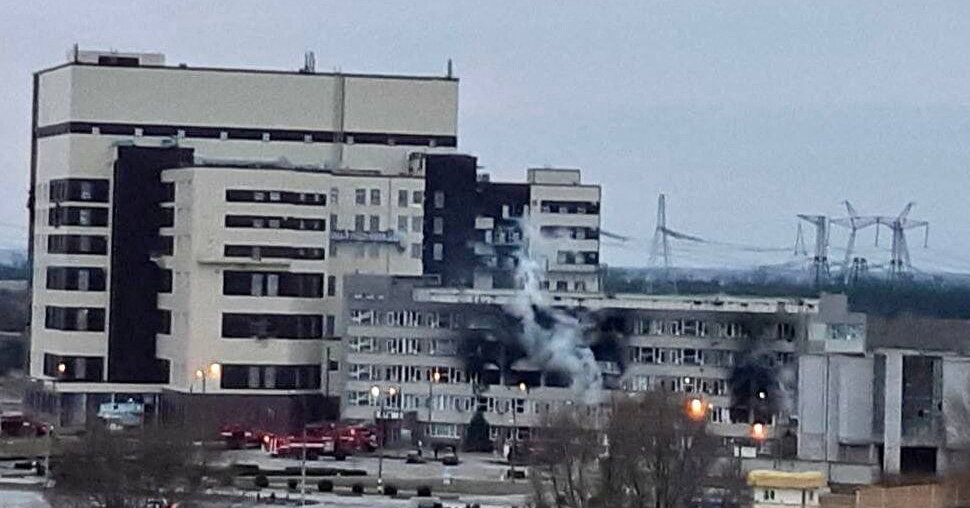
LVIV, Ukraine — Russian troops seized control of Europe’s largest nuclear power plant in southeastern Ukraine before dawn on Friday, according to Ukrainian officials, but a fire set off by a raging gun battle had been extinguished. The fighting and fire had raised worldwide alarm because of the potential that they could reach and damage the nuclear reactors and cause a radiation leak.
International monitors said early Friday that there was no immediate sign that radiation had leaked from the Zaporizhzhia plant. The Ukrainian emergency services agency said the fire had been contained to a training facility on the perimeter of the complex.
International observers and Ukrainian officials said that as of 6 a.m. the facility was still able to function safely.
There was damage to “the structure of the reactor compartment” at one of the six reactors, which the State Inspectorate for Nuclear Regulation of Ukraine said did “not affect the safety of the power unit.” That information came after the fire was put out but before it was clear that the Russians were in control of the facility.
However, there were many remaining dangers — from workers being able to do their critical jobs while the plant is occupied to the possibility of unreported damage at one of the reactors.
The company that oversees the complex, Energoatom, warned that any statements being made by workers from the time of the takeover could be being made under duress. The company also warned against trusting statements from local officials.
“There is a high probability that the recent speech of the mayor of Enerhodar was recorded under the barrel of a machine gun,” the company said, referring to a video the mayor had posted shortly after the Russians seized control and telling the public not to provoke them.
Only hours earlier, the mayor, Dmitry Orlov, had made an urgent plea for help and described fighting so fierce that emergency workers had been unable to move wounded people from the nuclear complex to a hospital.
The potential for catastrophe had set off alarm bells among world leaders. As the fire raged, President Biden and Prime Minister Boris Johnson of Britain spoke with President Volodymyr Zelensky of Ukraine, with all calling for an urgent halt to the Russian advance on the complex. Mr. Johnson said he would seek an emergency meeting of the United Nations Security Council.
The Russian defense ministry blamed Ukrainian saboteurs for threatening the plant, saying that Russian forces had taken control of the facility to foil a “monstrous provocation” by the Ukrainian government.
Russia-Ukraine War: Key Things to Know
A Ukrainian city falls. Russian troops gained control of Kherson, the first city to be overcome during the war. The overtaking of Kherson is significant as it allows the Russians to control more of Ukraine’s southern coastline and to push west toward the city of Odessa.
The Zaporizhzhia nuclear complex is on the Dnieper River roughly 100 miles north of Crimea. According to the International Atomic Energy Agency, its six reactors produce a total of 6,000 megawatts of electric power.
In comparison, the Chernobyl plant in northern Ukraine produced 3,800 megawatts. (A megawatt, one million watts, is enough power to light 10,000 hundred-watt bulbs.) The four reactors of the Chernobyl complex were shut down after one suffered a catastrophic fire and meltdown in 1986.
Besides the threat of fighting to Zaporizhzhia’s reactors and their cores full of highly radioactive fuel, the site has many acres of open pools of water where spent fuel rods have been cooled for years. Experts fear that errant shells or missiles that hit such sites could set off radiological disasters.
For days, social media reports have detailed how the residents of Enerhodar set up a giant barrier of tires, vehicles and metal barricades to try to block a Russian advance into the city and the reactor site. Christoph Koettl, a visual investigator for The New York Times, noted on Twitter that the barricades were so large that they could be seen from space by orbiting satellites.




